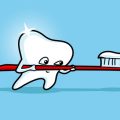Understanding Pet Dental Cover in the UK
When it comes to looking after our furry friends, dental care is often overlooked—yet it can have a major impact on both their wellbeing and our wallets. In the UK, “pet dental cover” is a feature offered by some pet insurance policies that specifically helps with the cost of dental treatment for cats and dogs. Typically, this cover includes procedures such as tooth extractions, treatment for gum disease, and even accidental injury to your pet’s teeth or mouth. However, what’s covered can vary greatly between insurers, and it’s important to read the small print. In British terms, you’ll often see “veterinary dental fees” or “oral health cover” listed in policy documents. Notably, many UK insurers will only pay out for dental work if your pet has had regular check-ups and dental maintenance, reflecting the local emphasis on preventative care. Understanding these details not only means you’re using the right terminology when shopping around, but also ensures you know exactly what your policy will pay for—helping UK pet owners avoid unexpected bills in the long run.
2. Common Dental Issues Facing British Pets
When it comes to the health of our furry companions in the UK, dental problems are more common than many pet owners realise. Both cats and dogs can develop a range of oral health issues, often influenced by local factors such as diet, environment, and even weather conditions. Understanding these common dental concerns is essential for appreciating why dental cover for pets can be a wise financial choice in the long run.
Typical Dental Problems in UK Cats and Dogs
| Dental Issue | Cats | Dogs | Main Causes in the UK |
|---|---|---|---|
| Gum Disease (Periodontal) | Very Common | Very Common | Poor oral hygiene, wet diets, plaque build-up due to lack of chewing hard food |
| Tooth Decay & Cavities | Common | Less Common | Sugar content in treats, processed foods, lack of tooth brushing |
| Tartar Build-Up | Common | Very Common | Softer diets, infrequent professional cleaning, breed predisposition (e.g., small breeds) |
| Broken or Fractured Teeth | Occasional (usually older cats) | Common (especially active chewers) | Chewing stones/sticks, playing with inappropriate objects, accidents outdoors |
| Stomatitis/Inflamed Gums | Fairly Common (especially certain breeds) | Occasional | Immune response issues, viral infections like FIV/FeLV in cats, poor dental hygiene |
| Resorptive Lesions (FORL/TR) | Common (particularly in mature/elderly cats) | Rare | Aging, genetic factors, less understood causes |
The British Context: Why Local Factors Matter
Diets: Many UK pets are fed soft or wet food diets rather than dry kibble. While convenient and often preferred by picky eaters, these softer foods don’t provide the natural abrasive action needed to clean teeth during chewing. This means plaque and tartar can build up much faster.
The Environment: Pets living in rural parts of Britain may be more likely to pick up sticks or stones when outdoors—leading to chipped or broken teeth. Meanwhile, urban pets might face risks from scavenging discarded human food high in sugar or starch.
Lifestyle & Habits: In the UK’s rainy climate, some pets get less outdoor exercise and stimulation. Less playtime with chew toys means fewer opportunities for natural teeth cleaning through gnawing.
The Cost Implication: Prevention vs Treatment
If left unchecked, minor dental issues can quickly escalate into serious (and expensive) problems requiring extractions or advanced veterinary care. As shown below:
| Treatment Needed If Ignored | Estimated Cost Range (UK) |
|---|---|
| Routine scale & polish (prevention) | £50 – £150 per session |
| Surgical tooth extraction (advanced issue) | £300 – £1,000+ depending on complexity and number of teeth involved |
Plain English Explanation:
If you don’t stay on top of your pet’s dental health early on—perhaps because you’re worried about costs—the problems can snowball. What starts as mild gum disease could end up costing hundreds of pounds down the line if your pet needs surgery. That’s why having dental cover as part of your pet insurance policy isn’t just a “nice-to-have”—it could actually save you quite a bit over time.
![]()
3. The Real Costs of Veterinary Dental Care
When it comes to looking after your pet’s teeth, the costs can quickly add up, especially if you’re caught off guard by a sudden dental emergency. Let’s break down what you might expect to pay at an average UK vet practice for common dental treatments—and what these figures mean if you don’t have insurance.
Typical Prices for Dental Treatments in the UK
Dental care for pets isn’t just about routine cleaning. It often involves professional scaling, tooth extractions, x-rays, and sometimes even more complex procedures. Here’s a general idea of the average costs:
- Routine dental check-up: £40–£70 per visit
- Scale and polish: £150–£300 per treatment
- Single tooth extraction: £100–£200 (can be higher depending on complexity)
- Multiple extractions or advanced procedures: £400–£800 or more
Out-of-Pocket Expenses Without Dental Cover
If your pet needs more than just a simple clean, the bills can start stacking up fast. For instance, a dental procedure involving several extractions could easily exceed £500 once anaesthesia, medication, and follow-up visits are included. And remember, these fees are typically charged per procedure—so if issues crop up again in the future, you’re back to square one with the expenses.
Why These Costs Matter for Pet Owners
Without insurance, all these costs come straight out of your pocket. Many owners in the UK find themselves facing difficult choices when unexpected vet bills arise—sometimes delaying or even skipping necessary treatments due to cost concerns. This not only impacts your wallet but can also affect your pet’s long-term health and happiness.
This is where having dental cover for your pet truly starts to make sense. By spreading the cost through manageable monthly premiums, you avoid nasty surprises and ensure your furry companion gets the care they need without hesitation.
4. How Dental Cover Can Save Pet Owners Money
Investing in dental insurance for your pet may seem like an extra monthly cost, but it can significantly reduce unexpected and hefty vet bills down the line. In the UK, dental procedures for pets—such as scale and polish, extractions, or treatment for gum disease—can cost anywhere from £150 to over £1,000 depending on severity and location. With many policies now offering dental cover as standard or as an add-on, owners have the chance to spread out these costs and avoid sudden financial shocks.
Breaking Down Typical Costs: Insured vs. Uninsured
| Treatment | Average Cost Without Insurance (UK) | With Dental Cover (After Excess) |
|---|---|---|
| Routine Scale & Polish | £150–£350 | £0–£50* |
| Tooth Extraction (per tooth) | £80–£250 | £0–£50* |
| Treatment for Gum Disease | £200–£800 | £0–£50* |
*Typical excess per claim. Actual costs depend on policy terms.
The Long-Term Savings Explained
If a pet develops dental issues that require ongoing care or multiple treatments, uninsured owners could face thousands in cumulative vet bills over their pet’s lifetime. Many UK insurers now cover both accident-related and illness-related dental treatments, making it easier to access necessary care promptly. Early intervention, encouraged by insurance coverage, also leads to better health outcomes—preventing more serious conditions such as abscesses or infections that are costlier to treat and more distressing for pets.
Real-Life Example from the UK:
A study by the British Veterinary Association found that insured pets were 40% more likely to receive timely dental care. For example, a London-based owner faced a £900 bill for multiple extractions in their uninsured spaniel; meanwhile, another owner with dental cover paid only a £45 excess for similar treatment. This not only saved money but ensured their dog recovered quickly thanks to prompt attention.
Ultimately, by investing in dental insurance for pets, UK owners gain peace of mind knowing they can provide essential care without breaking the bank—and help their furry companions enjoy healthier lives well into old age.
5. What to Look for in UK Pet Dental Insurance Policies
If you’re keen on saving money over time with pet dental cover, it’s vital to know what features make a good policy in the UK market. Here’s a breakdown of key things to watch out for—plus some plain English explanations to help you make sense of the small print.
Annual Limits: How Much Will the Insurer Actually Pay?
The annual limit is the maximum amount your insurer will pay out for dental treatments each year. Some policies lump dental costs in with general vet fees, while others offer a separate pot just for teeth and gums. Tip: For peace of mind, look for policies that provide a generous stand-alone dental limit—especially if your pet is prone to tooth trouble.
Excesses: What Will You Need to Pay Upfront?
The excess is your share of the bill before insurance kicks in. In the UK, this can be either a fixed fee (say, £75 per claim) or a percentage of the total cost (for example, 10%). Some insurers also increase excesses as your pet gets older. Tip: Double-check how excesses work and consider what fits your budget—not just now, but as your pet ages.
Exclusions: What Isn’t Covered?
This is where many owners get caught out. Common exclusions include pre-existing dental issues, routine cleaning (like scale and polish), and treatment needed because you skipped regular check-ups. Tip: Always read the exclusions section carefully so there are no nasty surprises when you make a claim. Ask whether cover applies to accidents only or includes illnesses such as gum disease.
Other Handy Features
- Cover for Anaesthetic: Many dental procedures need sedation—make sure it’s included.
- No-Claim Bonus: Some UK insurers reward you with lower premiums or perks if you don’t claim each year.
- Direct Payments to Vets: This can save you having to pay upfront and then wait for reimbursement.
Bargain-Hunting Tips
- Use UK price comparison sites—but always read the policy documents directly from the insurer before buying.
- If your pet is young and healthy, securing comprehensive dental cover now can lock in lower premiums long-term.
By focusing on these features and reading between the lines, you’ll find a UK dental insurance policy that saves you hassle—and money—when it matters most.
6. Long-term Benefits Beyond Financial Savings
When considering dental cover for pets, many UK pet owners focus on the immediate cost savings. However, the advantages stretch well beyond just financial relief. Investing in dental insurance doesn’t just mean fewer unexpected vet bills; it also supports a happier, healthier life for your furry companion and gives you lasting peace of mind.
Improved Pet Wellbeing
Regular dental check-ups and treatments covered by insurance help catch oral health issues early. This proactive approach prevents more serious conditions like gum disease or tooth infections, which can lead to pain, difficulty eating, and even broader health problems affecting the heart or kidneys. In short, good dental care means your pet is more likely to live a longer, more comfortable life—a top priority for most UK households.
Peace of Mind for Owners
Knowing that you have coverage in place takes away much of the stress associated with potential emergencies. Instead of worrying about how to afford sudden dental procedures, you can focus on what matters: your pet’s wellbeing. This assurance is especially valuable in the UK, where pet care costs are rising and unexpected expenses can disrupt household budgets.
A Stronger Bond Between Pets and Owners
Healthier pets are happier pets—and happy pets are more engaged with their families. When dental issues are managed before they escalate, pets remain energetic and affectionate, enhancing the unique bond between owner and animal. In essence, investing in dental cover isn’t just about saving money; it’s about ensuring quality time together for years to come.
Ultimately, opting for dental insurance provides holistic benefits that go far beyond your wallet. It safeguards your pet’s health, reduces anxiety over unforeseen costs, and strengthens the connection shared in every loving UK home.


